
Discover more from Frederick R. Smith Speaks
The Obsolete Man
The Obsolete Man is a dystopian episode from The Twilight Zone that portrays a society where books and individuality are banned, and the government has total control over people’s lives.
You walk into this room at your own risk, because it leads to the future, not a future that will be but one that might be. This is not a new world, it is simply an extension of what began in the old one. It has patterned itself after every dictator who has ever planted the ripping imprint of a boot on the pages of history since the beginning of time. It has refinements, technological advances, and a more sophisticated approach to the destruction of human freedom. But like every one of the super-states that preceded it, it has one iron rule: logic is an enemy and truth is a menace. This is Mr. Romney Wordsworth, in his last forty-eight hours on Earth. He’s a citizen of the State but will soon have to be eliminated, because he’s built out of flesh and because he has a mind. Mr. Romney Wordsworth, who will draw his last breaths in The Twilight Zone.
Rod Sterling, opening narration, The Obsolete Man
Foreword
This essay is about a dystopian episode from The Twilight Zone that portrays a society where books and individuality are banned, and the government has total control over people’s lives.1 Enjoy the trip from the past and back to our frightening reality of today.
The Obsolete Man
The Obsolete Man is a classic episode of the science fiction anthology series, The Twilight Zone, created by Rod Serling (1924-1975). The episode originally aired on June 2, 1961, and stars Burgess Meredith (1907-1997) as Romney Wordsworth, a librarian in a totalitarian state where books and free thought are banned. Society is highly regimented, with a totalitarian government suppressing dissent or independent thought. As the protagonist, Wordsworth is considered obsolete by the government and he is sentenced to death for his profession. The justice system is also highly unjust, with show trials and predetermined sentences.
The episode begins with Wordsworth standing before a tribunal declaring him obsolete, threatening the State. Wordsworth has been given a choice of how he wants to die: by a bomb or liquidation. He chooses liquidation and is given until midnight to prepare for his execution.
Initially portrayed as a timid and helpless man, Wordsworth is at the mercy of the totalitarian regime. However, as the episode progresses, he shows he is not as powerless as he appears. He uses his knowledge of literature to outsmart the State’s chancellor, played by Fritz Weaver (1926-2016), and ultimately, Wordsworth sacrifices his life to expose the regime’s cruelty.
The central theme of The Obsolete Man is the danger of authoritarianism and the importance of free thought. The episode demonstrates the lengths a totalitarian state will go to maintain control, including the suppression of books, the destruction of art, and the extermination of cogent thinkers.
Wordsworth’s character represents the power of literature and knowledge to inspire true critical thinking and challenge oppressive regimes. His willingness to stand up to the State and defend his beliefs, despite the consequences, is a powerful message about the importance of standing up for what is right.
There Is No God
The State declares there is no God as part of its philosophy of absolute control and totalitarianism. The State in the episode controls every aspect of citizens’ lives and deems that religion is obsolete and therefore forbidden. The State, depicted as a highly authoritarian and oppressive regime, claims to have all the answers and believes it is the only source of truth.2 The declaration that there is no God is part of this overall ideology, in which the State asserts its supreme authority and control over the lives of its citizens.
No Need For Books
The State declares “no need for books” as part of its absolute control and totalitarianism philosophy. The State in the episode controls every aspect of citizens’ lives and deems them obsolete as needed. It claims that books and other forms of personal expression are obsolete and, therefore, forbidden. The State, depicted as a highly authoritarian and oppressive regime, claims to have all the answers. It believes that it is the only source of truth. It seeks to eliminate any sources of information or knowledge that might challenge its rule.
The Climax
In the climax, Romney Wordsworth, the protagonist, faces trial for being obsolete in a dystopian society where books and individuality are banned. Wordsworth challenges the chancellor, a government official who has sentenced him to death. He is granted a last wish and gets his way with a final confrontation in his library. There, Wordsworth reveals that he has rigged a bomb set to detonate in 10 minutes. The chancellor tries to escape, but Wordsworth locks him into the room. He refuses to let him go until the time runs out, ultimately sacrificing himself to make a statement about the value of individuality and freedom of thought. The chancellor gets scared out of his wists and lives with the lesson of Wordsworth burned in his brain for the rest of his collectivist life.
In the closing narration, Rod Sterling says:
The chancellor, the late chancellor, was only partly correct. He was obsolete. But so is the State, the entity he worshiped. Any state, any entity, any ideology which fails to recognize the worth, the dignity, the rights of Man...that state is obsolete. A case to be filed under “M” for “Mankind” - in The Twilight Zone.
Analysis
While this episode of The Twilight Zone was written and produced more than 60 years ago, its themes are still relevant today. The idea of a totalitarian state controlling every aspect of people’s lives and eroding individual rights and freedoms is a concern in many parts of the world today. The idea of a person being declared obsolete by the State because of their beliefs, opinions, or profession is also relevant. Today, laws restrict the expression of specific ideas or opinions. Just ask a pro-life advocate or a concerned citizen who dares to opine about the state-sponsored castration of children. Some of these fine folk have had an FBI visit or faced ANTIFA terrorism.
The Obsolete Man episode of the Twilight Zone exemplifies science fiction that has become a reality. The episode highlights the dangers of a society that suppresses individuality and free thought and the importance of valid diverse perspectives and ideas. The episode also serves as a cautionary tale about the dangers of totalitarianism and the importance of preserving freedom of speech and expression.
Today we live in an even higher and more sinister form of totalitarianism. Facts and moral truths are subject to “moderation”3 or deemed hate speech at worst.
Conclusion
The Obsolete Man is a timeless episode as relevant today as in 1961. It is a warning against the dangers of authoritarianism and a call to action to defend free thought and individual liberty. Through Wordsworth’s character, the episode illustrates the power of literature and knowledge to inspire critical thinking and challenge oppressive regimes. It is a must-see for anyone interested in science fiction or political philosophy.
Also enjoy A Clockwork Orange, O.B.I.T. Overlord, The Outcast, and Logan’s Lesson
See Frederick R. Smith Speaks, Edward Bernays and Propaganda
A euphemism for censorship






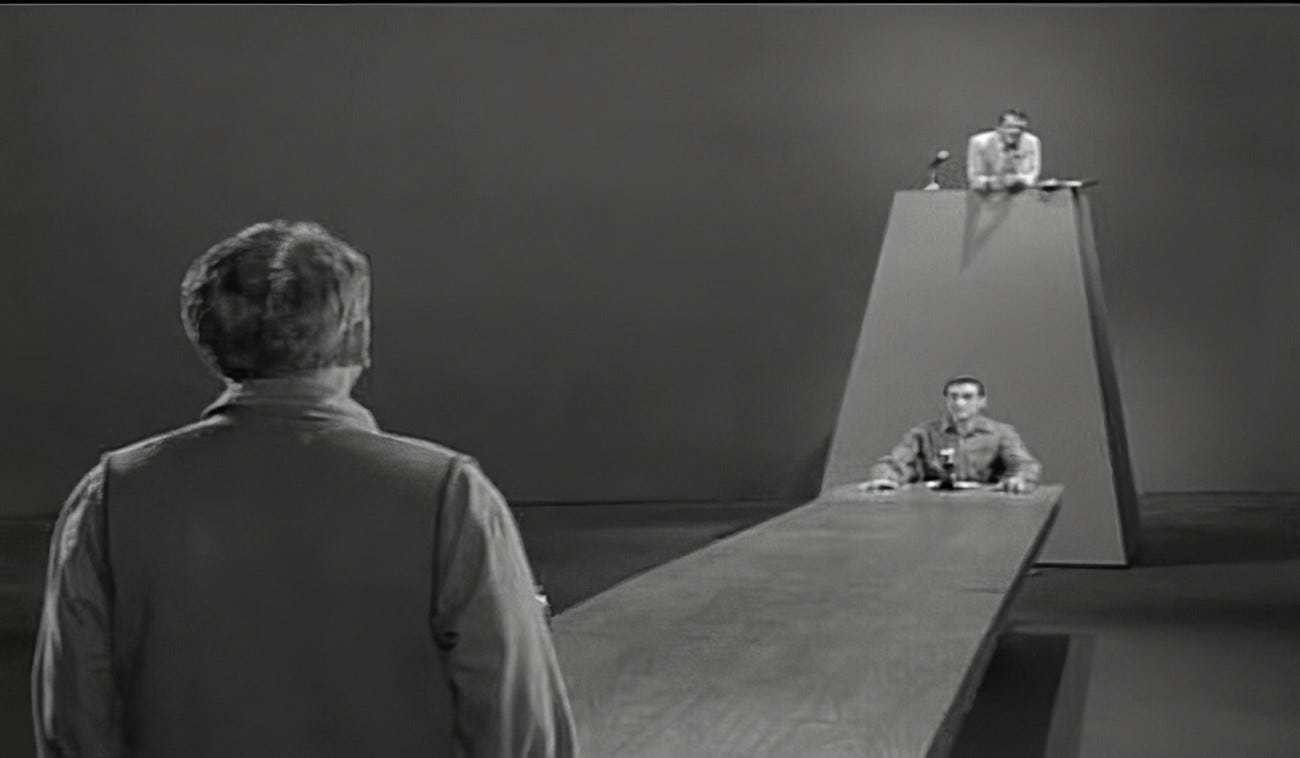
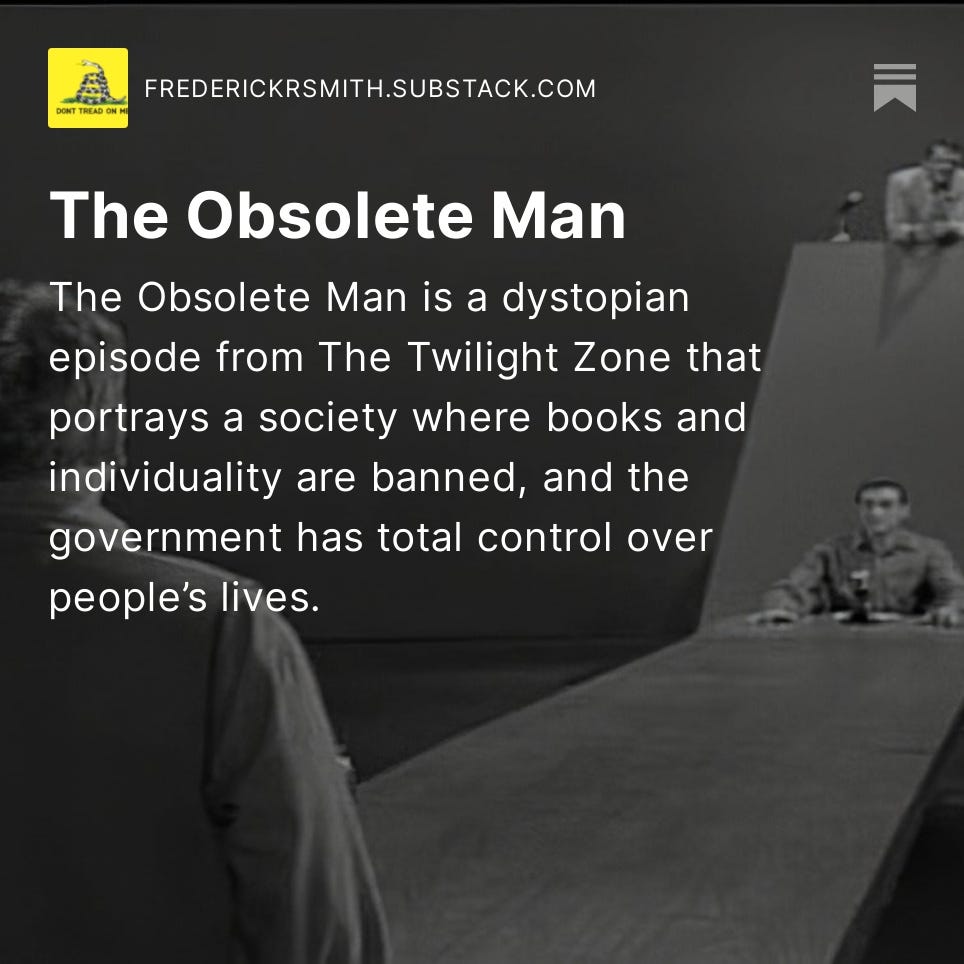
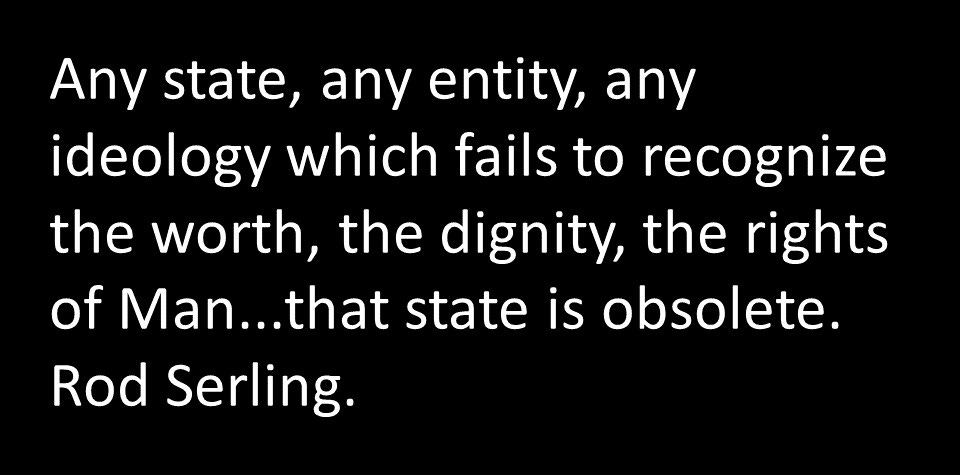
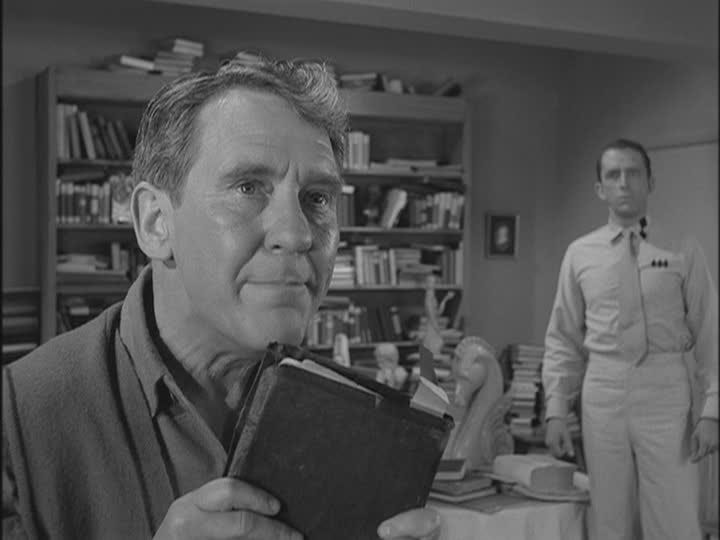






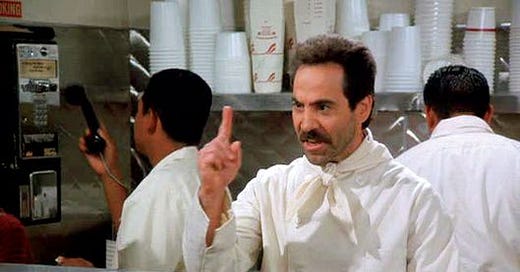

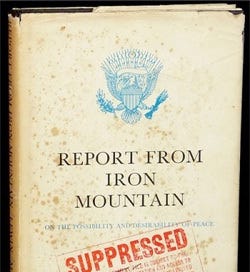

Burgess Meredith plays him well.
I'm nearing the end of Bradybury's Fahrenheit 451. I haven't read it in probably 30 years. It too has a similar theme.
Like many great stories written in the mid-twentieth century, it demonstrates that the knowledge and awareness of the threat of large, powerful, totalitarian "states" was widespread. It is a shame we did not listen to the words written as being so prescient.